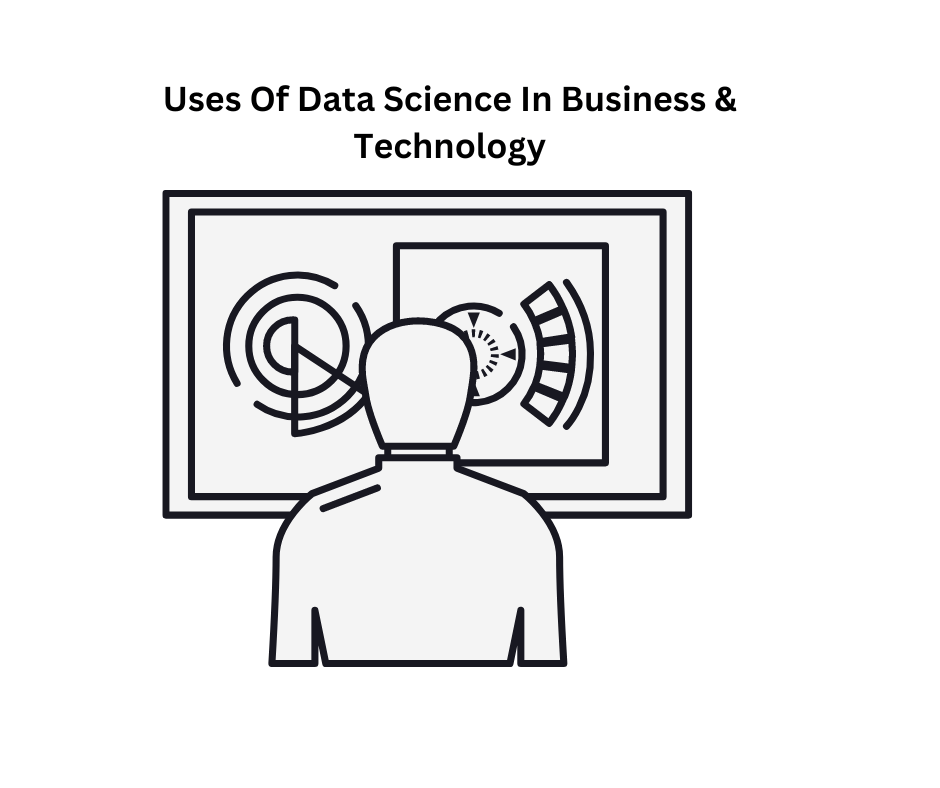Data science is the interdisciplinary study of probability, statistics, mathematics, data analysis, artificial intelligence, machine learning, computer science, and business. Its purpose is to extract meaningful information and actionable insights from noisy data, and it has become increasingly popular in industries such as finance, healthcare, retail, and more.
Data science is the use of algorithmic models and programming techniques to analyze large amounts of data. It enables better decision-making with predictive analytics and forecasting capabilities and offers valuable insights through natural language processing, allowing businesses to understand customer sentiment from text-based feedback or social media conversations in real-time. Data science offers numerous benefits for businesses and technologies, including optimization tasks such as recommendation systems or customer segmentation.
However, implementing data science in an organization’s workflow presents challenges, including collecting the appropriate data for accurate results, ensuring the quality of collected data, and creating an environment that encourages collaboration between teams within an organization working on different aspects of data science implementation. To overcome these challenges, organizations should have well-defined processes in place, taking into account all aspects related to successful data science implementation within their business practices.
Performing actual data science tasks requires several steps: defining the problem statement based on the desired information from the dataset, selecting appropriate algorithms, designing a model that generates expected results from the input dataset, running tests for model accuracy before deploying it into a production environment, and monitoring performance over time as new datasets arrive that may require further tuning and adjustments.
By following these steps, organizations can implement various applications enabled by data science solutions, thus optimizing costs and improving overall efficiency and productivity.
Understanding The Benefits Of Applying Data Science To Business And Technology Solutions
Data Science is an interdisciplinary field that utilizes scientific approaches, procedures, technologies, and systems to extract information and insights from organized and unstructured data. It has become an essential tool for businesses today as it helps them make informed decisions about their operations and strategies. The Data Science Training in Hyderabad program by Kelly Technologies can help you grasp an in-depth knowledge of the data analytical industry landscape.
First, let’s explore what Data Science is and its uses. Data Science combines mathematics, statistics, and computer science principles with domain knowledge to identify patterns or trends in data sets. It can be applied to many applications, such as predicting customer behavior or trends that improve the performance of a business. Data Science can also identify new opportunities that may have been previously overlooked or unknown due to techniques such as machine learning or predictive analytics.
The Benefits of Applying Data Science to Business Solutions are many. They include gaining insights into customer behavior, which leads to better decision-making, optimizing processes within a company, uncovering new opportunities, and saving time by automating certain tasks that would otherwise take longer if done manually. Moreover, leveraging Data Science can lead companies into new markets that they were previously unaware of due to a lack of data access or analysis capabilities.
When applying Data Science for technology solutions, there are several steps that must be understood first. Understanding the problem you are solving, collecting relevant datasets, analyzing available datasets using tools like machine learning algorithms, developing models based on your analysis results, testing models on relevant datasets, and deploying models with production-level infrastructure are all important steps. Understanding these steps will help ensure the success of implementing Data Science projects into your respective industry environment.
Understanding the benefits of applying Data Science in business solutions is crucial for any organization seeking growth potential within their industry sector. Leveraging its diverse methods, such as machine learning algorithms, can revolutionize decision-making within organizations while also helping them stay ahead of competitors. Following best practices when working with Machine Learning principles will ensure success when utilizing this powerful toolset properly, so companies can take full advantage of its many benefits, leading them towards a brighter future!
Data Science Career Paths & Salaries
Are you considering a career in data science? If so, you have come to the right place.
Data science is an interdisciplinary field that combines machine learning, programming, and statistics to extract useful intelligence from large sets of data. Professionals in data science leverage their knowledge of these tools and techniques to improve company performance, optimize customer experience, and increase efficiency. This field differs from traditional business intelligence (BI) in its ability to process larger amounts of data and identify hidden patterns for decision-making purposes or automated processes.
Data science presents a range of job opportunities, including data analyst, data engineer, and data scientist; each role has its own set of responsibilities depending on an organization’s requirements. For example, a data analyst focuses on understanding customer behavior, while a data engineer creates pipelines for collecting large amounts of structured or unstructured datasets across various sources. On the other hand, a data scientist conducts experiments by applying statistical models to collected datasets to uncover insights that can help with decision-making processes within an organization or industry as a whole. Salaries associated with these roles vary depending on experience levels, but they all demand specific technical skills such as proficiency in programming languages like Python & R, as well as knowledge in machine learning algorithms & statistical fundamentals.
The demand for skilled data science professionals is increasing rapidly due to technological advancements such as artificial intelligence (AI) & Internet of Things (IoT). Companies are realizing that having access to large sets of structured & unstructured datasets can help them gain a competitive advantage over their competitors by offering insights into customer behavior or predicting future trends within their target markets. As such, there are many exciting career paths available for those who have both the technical and soft skills required for successful implementation of AI-driven initiatives within organizations, ranging from startups to Fortune 500 corporations!
How To Choose The Right Career Path In Data Science
Are you considering a career in data science? If so, you’re on the right track. Data science is an exciting and rapidly growing field that can help you create innovative solutions to complex problems. But before diving into the world of data science, it’s important to understand what it is and which career path is best for you.
Data Science involves the use of advanced analytics to extract valuable insights from large datasets. It requires a combination of technical skills, such as programming languages, mathematics, and machine learning algorithms, to process and analyze information for a variety of purposes, such as predicting outcomes or uncovering trends. To be successful in this field, it also requires problem-solving abilities along with communication skills so that data scientists can effectively explain their findings to stakeholders.
When considering a career in Data Science, one must research the different types of jobs available within this growing field, including Data Analyst, Machine Learning Engineer, or Research Scientist roles within different organizations, such as government agencies or private companies like Google or Amazon Web Services (AWS). It’s also important to gain familiarity with popular tools used by data scientists, such as Python programming language (for coding), Tableau (for visualizing data), and Hadoop (for big data analysis).
It’s also essential for aspiring professionals in this area to gain experience through internships, apprenticeships, or volunteering opportunities that involve working with real-world datasets under the guidance of experienced professionals. Additionally, networking with other professionals in your area can help stay updated on the latest trends and advancements in Data Science, which will give an edge when applying for positions within this field.
Conclusion
Building a successful career path in Data Science requires acquiring both technical knowledge alongside soft skills like communication so that one can effectively explain findings from datasets, back up their claims with verified evidence when asked about their work. This article webblogworld should provide you with a clear idea Data Science.




